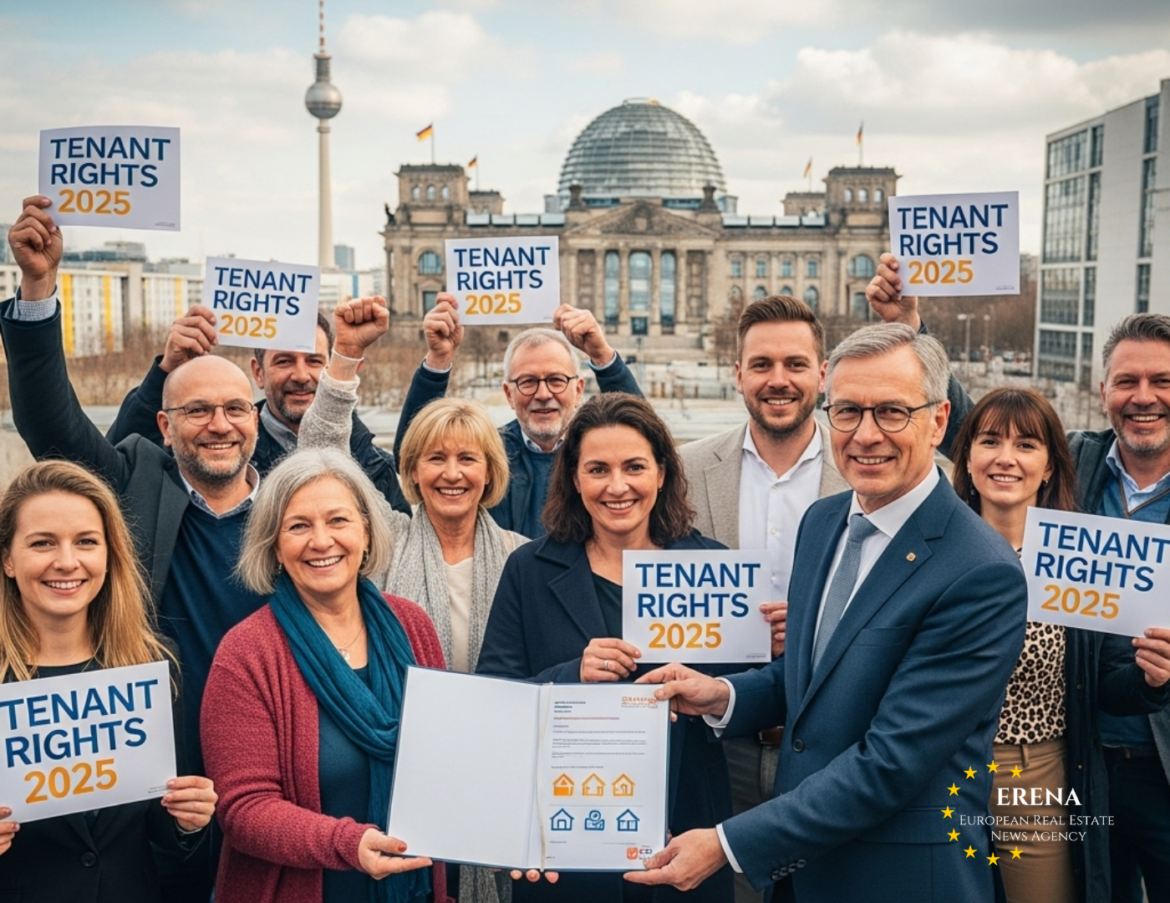In 2025, the German government is implementing a comprehensive set of reforms aimed at strengthening tenant rights and expanding public housing assistance. These measures come in response to increasing pressure on the rental market, rising living costs, and growing social inequality across urban areas. The reform package includes both federal and state-level initiatives and touches on key aspects of rental law, social housing, and support for low-income households.
Background: The Affordable Housing Crisis
In recent years, Germany has faced a growing shortage of affordable housing, particularly in major cities and economically dynamic regions. Demand for rental apartments has consistently exceeded supply, driving up rental prices. According to the Federal Statistical Office, average rents in Berlin have increased by 27% over the past five years, while in Munich, the figure is 34%.
Additional pressures include inflation, rising utility costs, and demographic shifts, such as an increasing number of single-person households and continuing migration. By 2024, more than 13% of German households were at risk of housing insecurity — from unaffordable rents to the threat of eviction.
Key Components of the 2025 Reform
The ruling coalition of Social Democrats, Greens, and Free Democrats (the “traffic light” coalition) has introduced a legislative and financial package set to take effect in January 2025. The reform focuses on increasing security for tenants, expanding housing subsidies, and stimulating the construction of social housing.
1. Stricter Rent Controls
- A new model called “Mietpreisbremse Plus” (enhanced rent cap) will be in effect until the end of 2029.
- Rent increases for existing leases will be limited to a maximum of 6% over three years (previously 15%).
- For new leases, rents may not exceed 10% above the local average market rent.
2. Expansion of Housing Benefits (Wohngeld)
- The Wohngeld program’s budget will be increased to €5.4 billion in 2025.
- Income thresholds for eligibility will be raised — households earning up to €24,000 per year (previously €20,000) will now qualify.
- A new energy allowance component will offset rising heating and electricity costs.
3. Enhanced Protections Against Evictions
- Evictions without prior court approval will be prohibited, even for prolonged payment delays.
- Mandatory six-month notice periods will apply in most lease termination cases, except in cases of gross violations.
- Tenants will have the right to reinstate their lease if overdue payments are settled before the eviction is enforced.
4. Support for Social Housing Construction
- €3 billion will be allocated from the federal budget to subsidize the construction of 100,000 new social housing units by the end of 2027.
- At least 40% of these units must be designed to accommodate elderly and mobility-impaired individuals.
- Priority will be given to environmentally sustainable and energy-efficient projects.
5. Transparency and Tenant Information
- All rental listings must now include an Energy Performance Certificate (EPC) rating.
- A centralized, publicly accessible digital rent index will be established for all municipalities.
Public and Industry Response
The response to the reform has been mixed. Tenant advocacy groups largely support the initiative, calling it “a necessary step toward restoring fairness in the rental market.” The German Tenants’ Association (Deutscher Mieterbund) emphasized the significance of expanded housing benefits and stronger eviction protections.
However, real estate developers and large landlords have voiced concern. They argue that tighter rent controls could deter investment in the rental sector, especially in new residential construction.
Experts at the Ifo Institute for Economic Research note that the long-term success of the reform will depend not only on regulating the market but also on boosting the construction of new housing. In 2024, only 285,000 housing units were completed in Germany — 20% fewer than five years ago.
Regional Participation and Measures
The reform package includes significant involvement from state (Länder) governments. Federal authorities will grant states flexibility to adjust rent control measures based on local housing needs. Some examples include:
- Berlin: Will lower the maximum allowed rent increase to 5% over three years.
- Hamburg: Plans to automatically link Wohngeld increases to rising rent levels.
- Saxony: Establishing a €120 million regional fund to support tenants facing rental arrears.
Several state governments have also announced new municipal housing projects with fixed below-market rental rates to alleviate pressure in high-demand areas.
European Context
Germany’s housing reform has sparked interest across Europe, especially amid a continent-wide rental crisis. Similar rent control and subsidy models have been adopted in Austria and France, while Spain and the Netherlands are considering comparable legislation.
The International Union of Tenants praised the German model, stating that “Germany’s balanced approach could serve as a blueprint for tenant-focused policy in Europe.”
Conclusion
Germany’s 2025 housing reform marks a significant shift toward a more socially responsive rental market. By strengthening tenant protections, expanding housing subsidies, and investing in social housing, the government aims to curb housing inequality and ease pressure on vulnerable households.
The success of the reform will depend on effective implementation at both national and regional levels, as well as sustained public and private investment in the housing sector. Germany is attempting to strike a balance between tenant welfare and economic feasibility — and 2025 will be a critical year in testing the viability of that vision.

